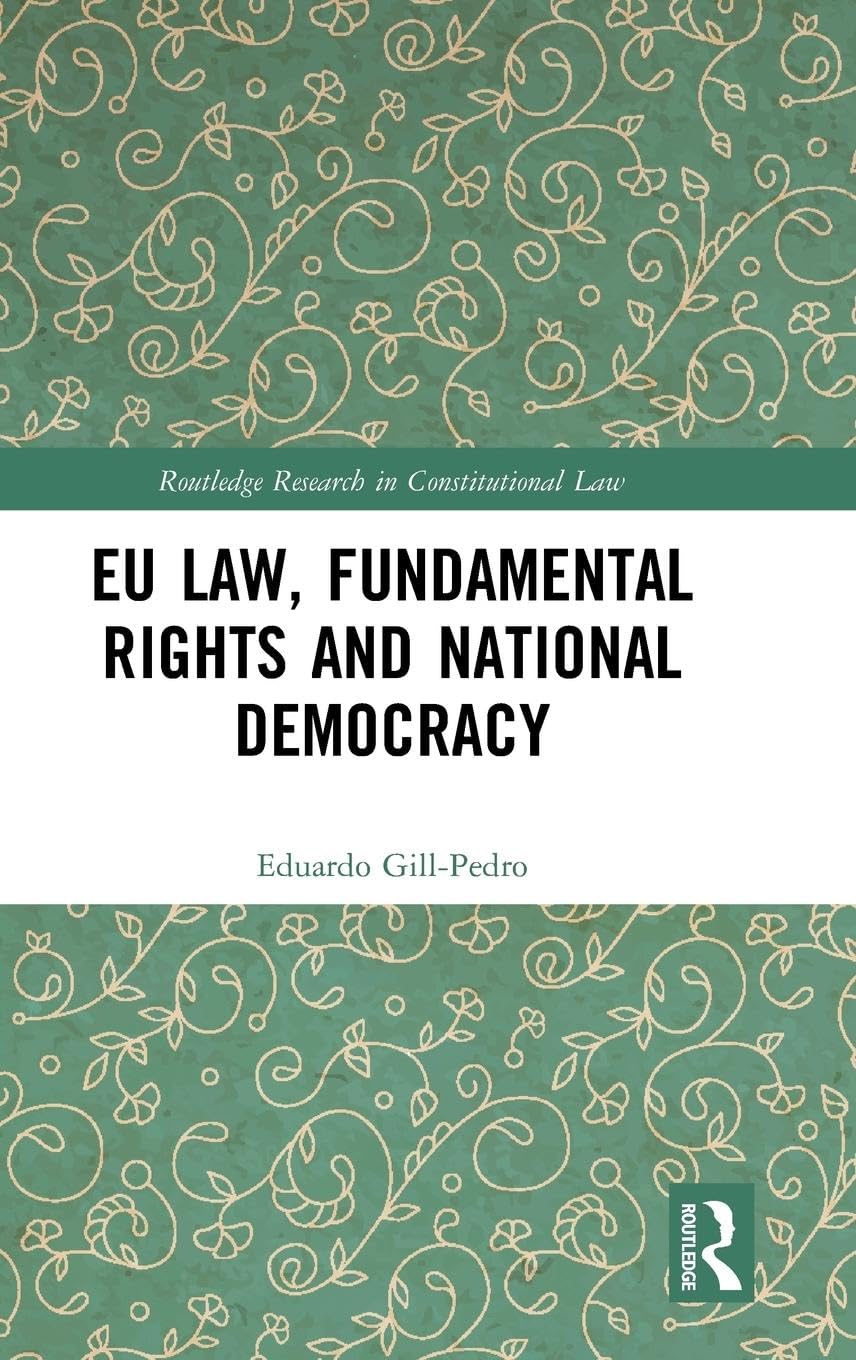EU Law, Fundamental Rights and National Democracy (Routledge Research in Constitutional Law)
EU Law, Fundamental Rights and National Democracy (Routledge Research in Constitutional Law) is backordered and will ship as soon as it is back in stock.
Couldn't load pickup availability
Genuine Products Guarantee
Genuine Products Guarantee
We guarantee 100% genuine products, and if proven otherwise, we will compensate you with 10 times the product's cost.
Delivery and Shipping
Delivery and Shipping
Products are generally ready for dispatch within 1 day and typically reach you in 3 to 5 days.
Book Details
-
Publisher: Routledge
-
Author: Eduardo Gill-Pedro
-
Language: English
-
Edition: 1
-
ISBN: 9780815385967
-
Pages: 238
-
Cover: Hardcover
-
Dimensions: 9.2 x 6.1 x 0.7 inches
About The Book
In The Fundamental Rights and Democracy in EU Law, Eduardo Gill-Pedro offers a critical examination of the orthodox view that rights complement democracy, specifically in the context of EU law. The book challenges this view, focusing on the requirement that EU member states respect EU fundamental rights and their implications on national legal orders.
Gill-Pedro presents a legal theoretical framework that defines how human rights can complement democracy, arguing that they function both as the conditions for the democratic process and its outcome. The book explores how the Court of Justice of the EU (CJEU) imposes demands on national legal orders concerning EU fundamental rights, concluding that these demands may come at the cost of democratic legitimacy in those national legal orders.
This thought-provoking work is essential for those interested in EU law, human rights, and the intersection of legal theory with democracy. It provides a nuanced perspective on the tensions between the EU's demands and the sovereignty of national legal systems, making it a crucial read for scholars, policymakers, and students of international law.





